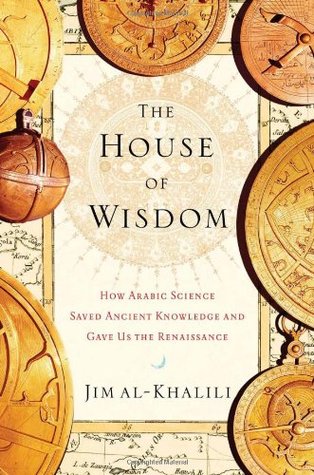|
The House of Wisdom: The remarkable story of how medieval Arab scholars made dazzling advances in science and philosophy and of the itinerant Europeans who brought this knowledge back to the West
By Jonathan Lions and Jim Al-Khalili Published in January 2009 320 Pages Thibault’s Score: 4/5 I decided to read this book after I saw Jim Al-Khalili’s 2015 Al Jazeera documentary series about the Islamic Golden Age. Jim Al-Khalili is an atheist Iraqi British physicist living in the UK who, in addition to studying science directly, also studies the history of science. I found his documentary series to be very interesting, and his book, accordingly, did not disappoint. This book covers how Islam went from a religion followed by backwards Arab nomads into the world’s most advanced reigning civilization for centuries. Al-Khalili’s main argument is that the medieval Muslims, like other civilizations that rapidly progressed, did not do so from scratch. Instead, they did so by incorporating the knowledge of past civilizations such as the Greeks, Romans, Indians, Persians, and Chinese into their own. The House of Wisdom’s main focus is the translation movement, which was funded by the Caliphs in order to transcribe the learning of other civilizations into Arabic. Al-Khalili argues that Islam achieved its high level of progress by understanding and assimilating this information, then building upon it. Interestly enough, this model of civilizational progress seems to hold true for other civilizations - the Italian renaissance would, in turn, draw its own inspiration from the Islamic Golden Age. In this book I learned about a wide variety of early scientific advancements made by the Muslims. This includes extensive progress in medicine, optics, and chemistry. Al-Khalili also covers Islamic scholarship in other areas such as theology and philosophy, albeit in less detail. Most interesting was how the Muslim scholars integrated the Indian concept of “zero” with Greek mathematics to create modern math as we would understand it today. If it hadn’t been for the Arabic ability to integrate knowledge from different regions in Eurasia, the development of mathematics would have been significantly delayed. Even modern scientific language often originates from Arabic. For example, the word “algebra” comes from the bastardized Arab word “al-jabr” which means the union of broken parts. Other obvious examples starting with “al” include “alchemy,” “alkaline,” and “alcohol.” Many stars were first named and observed by Muslims, as well as a wide variety of botanical names. The scientifically curious and philosophically pondering Islam from the Abbasid Golden Age is long gone. Now, it has been replaced with a backwards and inwards looking religion that fails to produce quality scientists and thinkers. The House of Wisdom offers modern readers a glimpse of a time when Islam was very different, and when Muslims led the world’s thinkers. Overall, this book is a must read for anyone interested in several categories of knowledge: the history of science, Islam, or the Middle Ages. This book is well written, easy to listen to as an audiobook, and accessible to just about anyone.
0 Comments
Leave a Reply. |
Thibault SerletMost of my articles are book reviews, but I also write about many other topics. Archives
December 2023
Categories |

 RSS Feed
RSS Feed